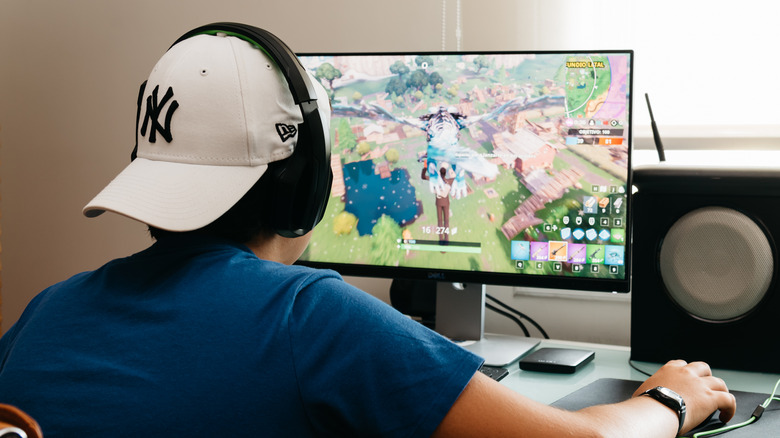Fortnite Is Losing Millions Over This Serious FTC Investigation
In an age where privacy is a hot topic even among those in the gaming industry, it seems that Epic Games has been caught with its hand in the proverbial cookie jar. Following a recent investigation, the company is going to be forced to fork over half a billion dollars.
Since its release in 2017, Epic Games' "Fortnite" has been one of the most successful and lucrative titles on the gaming market. But during its time in the spotlight "Fortnite" has been embroiled in several different scandals. The latest chapter in the controversial "Fortnite" saga, however, might be the most costly in its history. Epic Games has been under investigation by the Federal Trade Commission (FTC) for allegedly using dishonest and shady practices when marketing its in-game microtransactions.
Now, the FTC has ruled that Epic Games is indeed guilty of these practices, arguing that they came at the expense of children.
The FTC will force Epic Games to pay out $520 million
In a report published by the Federal Trade Commission on December 19, the FTC announced that it had come to an agreement with Epic Games that would see the latter pay out over $520 million after being found to be in violation of the Children's Online Privacy Protection Act (COPPA). According to the FTC, Epic Games purposefully deceived children playing "Fortnite" into buying unwanted digital items by employing the use of "dark patterns" — defined as a "counterintuitive, inconsistent, and confusing button configuration" that could result in users unwittingly purchasing items when waking the game from sleep mode or when previewing items.
Included in the $520 million penalty is a $275 million fine for violating the COPPA, which the FTC calls "the largest penalty ever obtained for violating an FTC rule." The remaining $245 million will be used to refund any consumers who may have fell victim to visual trap.
In response to the FTC's ruling, Epic Games published a blog post stating that the company would put its best foot forward in rectifying these issues in the future. "Pushing a button to complete a purchase is one of the most commonly used and easiest mechanics to complete online purchases," the blog post read. "Games should go above and beyond to make sure players even more clearly understand when they are making a purchase with real money or with virtual currencies to prevent accidental purchases. We don't want players to pay for something that they did not intend to."


